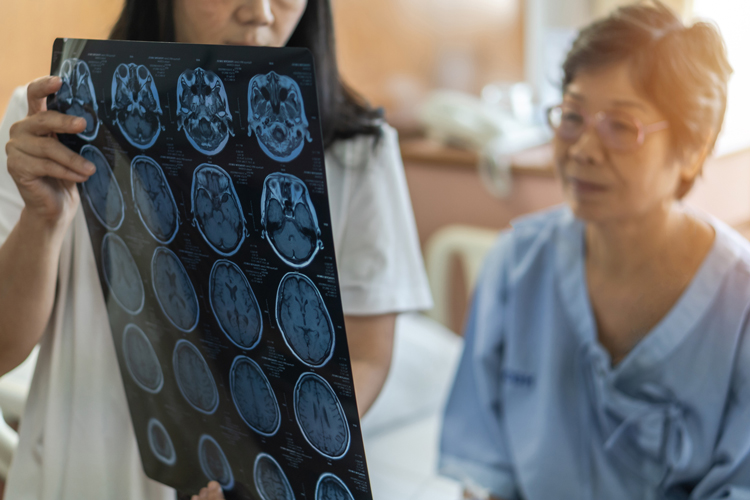
Head trauma from a fall is a leading cause of traumatic brain injury in seniors.
When you think of a traumatic brain injury (TBI), your initial thought is probably a sports-related accident, such as a football player crashing head-first into a rival, or maybe a head-on collision in a car accident – something less likely to affect senior loved ones. Even so, the prevalence of traumatic brain injuries in older adults is more typical than you might think. In reality, among the leading factors behind TBIs is falls – which we know are also one of several primary reasons for significant injury in seniors.
Head trauma that results in traumatic brain injury is defined as mild, moderate, or severe, based on a number of criteria: whether the person who incurred the injury was rendered unconscious, and if so, how long the state of unconsciousness lasted, together with the degree of symptom severity. Whatever the classification, a TBI might have long-lasting and considerable effects on older adults. Symptoms vary from one person to another, but can sometimes include any or all of the following:
- Confusion, disorientation, in addition to the inability to recall the events surrounding the injury
- Problems with remembering new information and/or with speaking coherently
- Headache and/or dizziness
- Blurred vision
- Nausea and/or vomiting
- A ringing sound in the ears
- Emotional and/or sleep disturbances
In a mild TBI, or concussion, the individual usually maintains a state of consciousness, or if unconsciousness is experienced, it’s no more than half an hour in duration. A moderate TBI is diagnosed when unconsciousness lasts longer half an hour but less than twenty-four hours, while a severe TBI results from more than a day of unconsciousness. Symptoms are usually the same regardless of the level of injury, but they are more serious and last for a longer time as the severity also increases.
With as many as 775,000 current senior TBI survivors, it is important to take the appropriate measures now to ensure your senior loved ones stay safe, in particular from falls. These protective measures will help:
- Assess the home environment and fix any fall hazards such as throw rugs, extension cords, any clutter or furniture blocking walking paths, and insufficient lighting.
- Be certain that older adults take advantage of a cane or walker at all times when recommended by the physician, to compensate for any muscular or balance insufficiencies.
- Consult with the doctor about any potential medication side effects that could bring about dizziness or drowsiness, each of which heighten fall risk.
- Make sure senior loved ones receive at least annual eye exams and that corrective lenses are always worn when prescribed.
Home With You Senior Care can help in many ways, from in-home safety evaluations to avoid falls, to highly personalized care for seniors struggling with the difficulties of a TBI or other conditions. Call us at 410-756-0959 for a complimentary in-home assessment and also to learn more about how our professional home care and live in care in Hampstead and surrounding areas is helping older adults live life to the fullest, every day.
